Cosmology
Latest about Cosmology
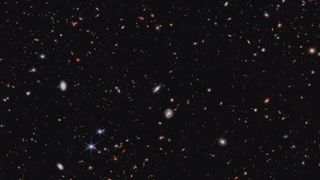
Early galaxies weren't mystifyingly massive after all, James Webb Space Telescope finds
By Charles Q. Choi published
'The bottom line is, there is no crisis in terms of the standard model of cosmology.
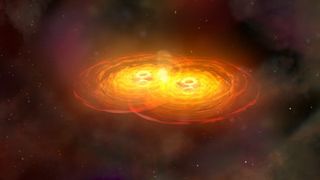
Gravitational waves hint at a 'supercool' secret about the Big Bang
By Robert Lea published
Scientists might be on track to revealing new facets of physics.
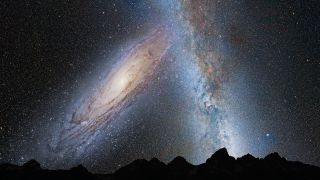
Catastrophic collision between Milky Way and Andromeda galaxies may not happen after all, new study hints
By Ben Turner published
Astronomers have long predicted that a collision between our galaxy and nearby Andromeda could be inevitable, but new calculations suggest this may be an over exaggeration.

Is the James Webb Space Telescope really 'breaking' cosmology?
By Paul Sutter published
While headlines around the world claimed that ancient galaxies discovered by the James Webb Space Telescope were "breaking" our understanding of the Big Bang, the truth is much more nuanced — and much more interesting.
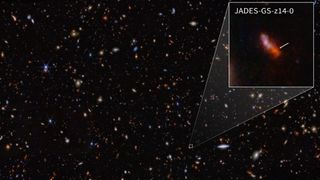
Can the James Webb Space Telescope see galaxies over the universe's horizon?
By Robert Lea published
The James Webb Space Telescope has revolutionized astronomy in just two years of operations, but how can it see a galaxy 33.8 billion light-years away in a universe that is only 13.8 billion years old?
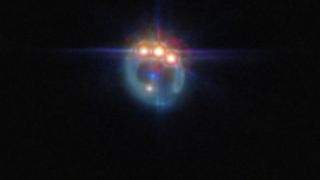
James Webb telescope spies bejeweled 'Einstein ring' made of warped quasar light
By Harry Baker published
New photos from the James Webb Space Telescope show off the bewitching beauty of the warped quasar RX J1131-1231, which is adorned with four bright spots birthed by mind-bending space-time trickery.
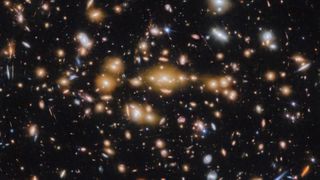
'The early universe is nothing like we expected': James Webb telescope reveals 'new understanding' of how galaxies formed at cosmic dawn
By Ben Turner published
Astronomers using the James Webb Space Telescope have observed five extremely dense proto-globular clusters along a hair-thin arc of glittering stars. The discovery could help them understand how the earliest galaxies formed.
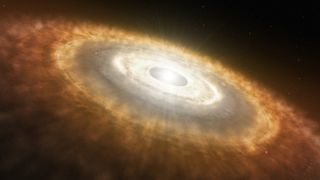
James Webb telescope reveals 'cataclysmic' asteroid collision in nearby star system
By Ben Turner published
The James Webb Space Telescope has caught a snapshot of two massive asteroids colliding in a nearby star system — and it could teach us about how common solar systems like our own are.
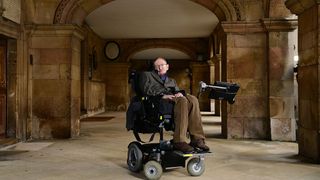
'Physics itself disappears': How theoretical physicist Thomas Hertog helped Stephen Hawking produce his final, most radical theory of everything
By Ben Turner published
Thomas Hertog tells us how he collaborated with Stephen Hawking on his final theorem — a Darwinian revolution in physics that explains the origin of time.
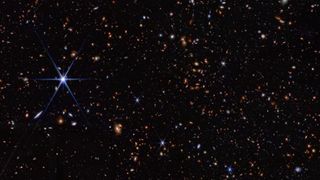
James Webb telescope finds carbon at the dawn of the universe, challenging our understanding of when life could have emerged
By Ben Turner published
The James Webb Space Telescope has found carbon in a galaxy just 350 million years after the Big Bang. That could mean life began much earlier too, a new study argues.
Sign up for the Live Science daily newsletter now
Get the world’s most fascinating discoveries delivered straight to your inbox.
